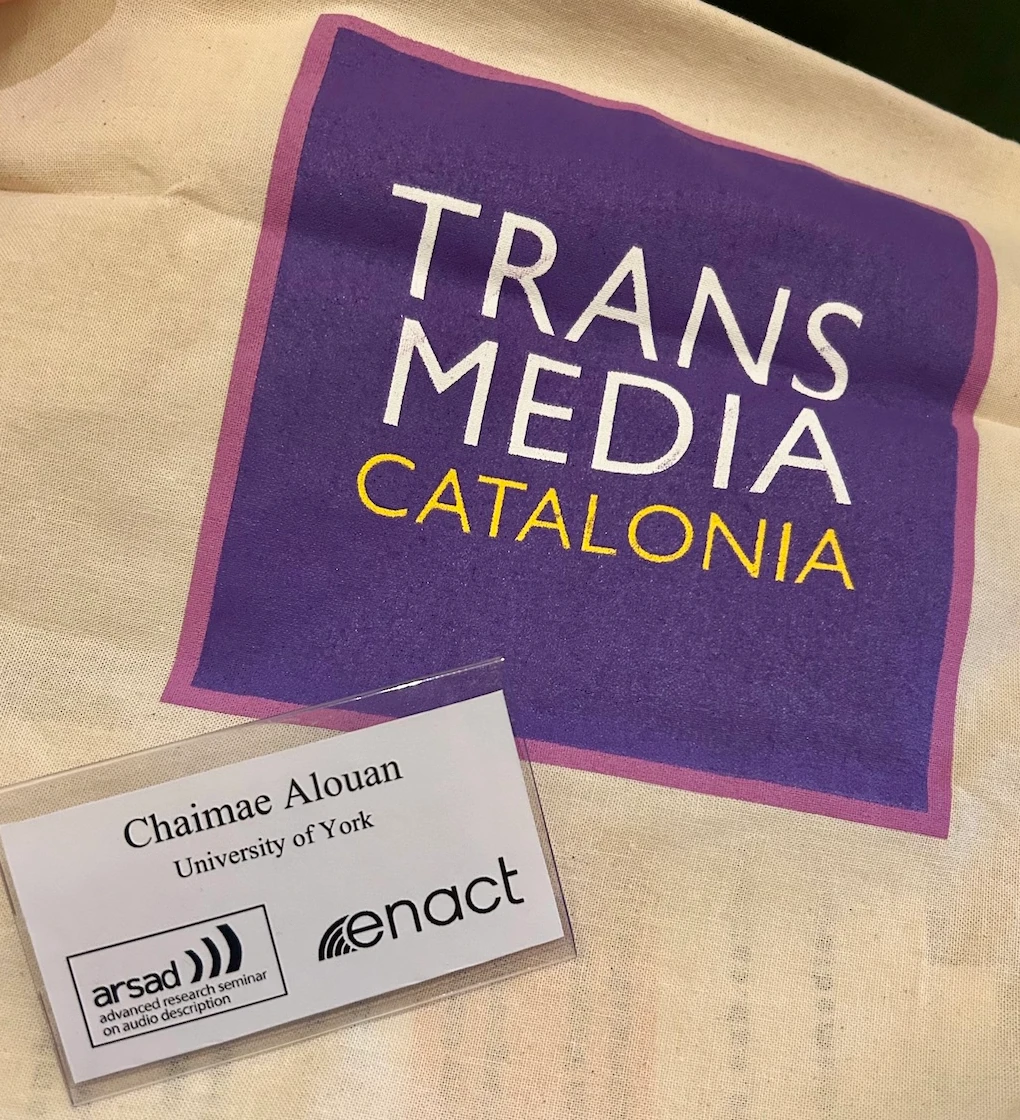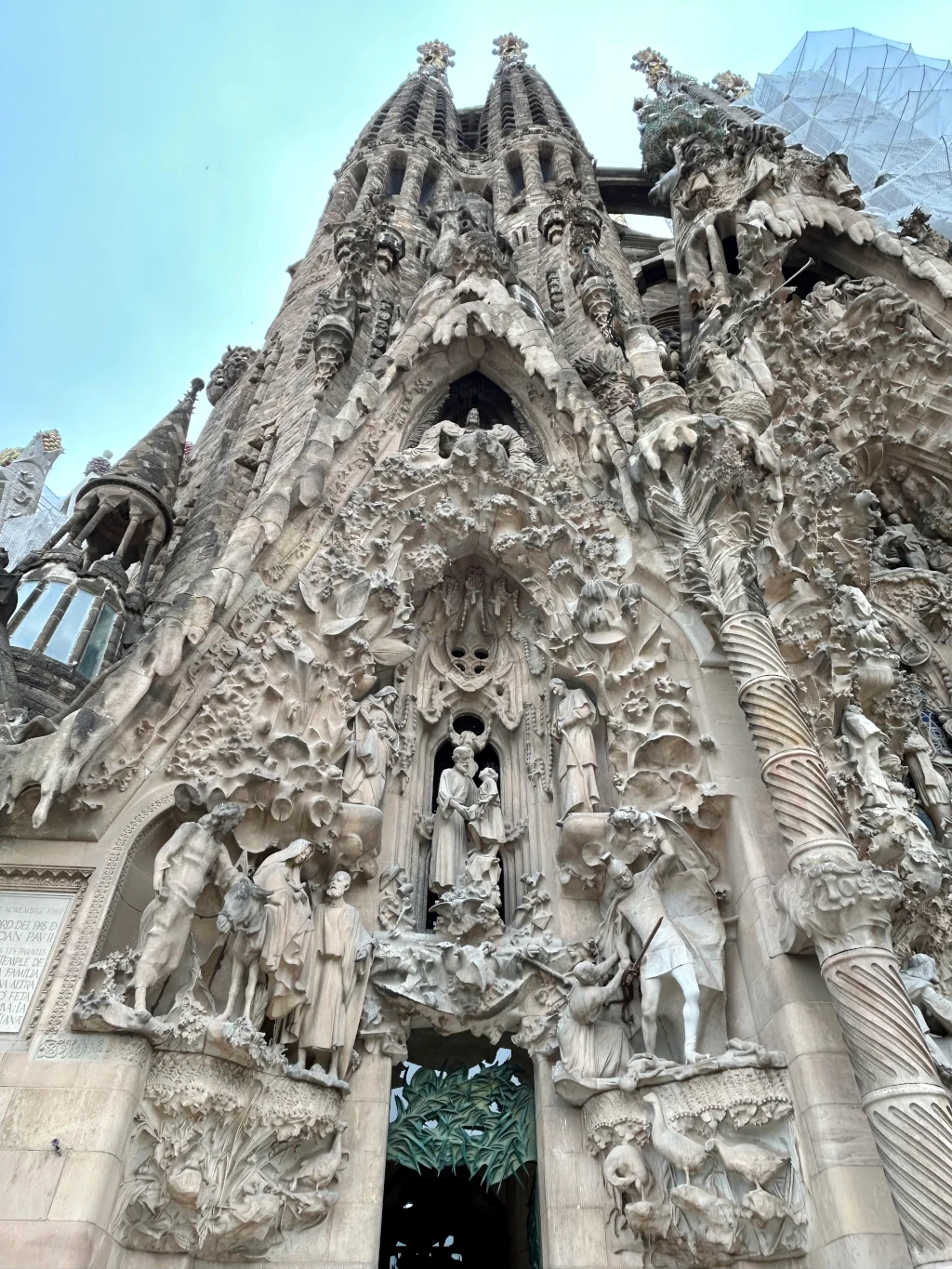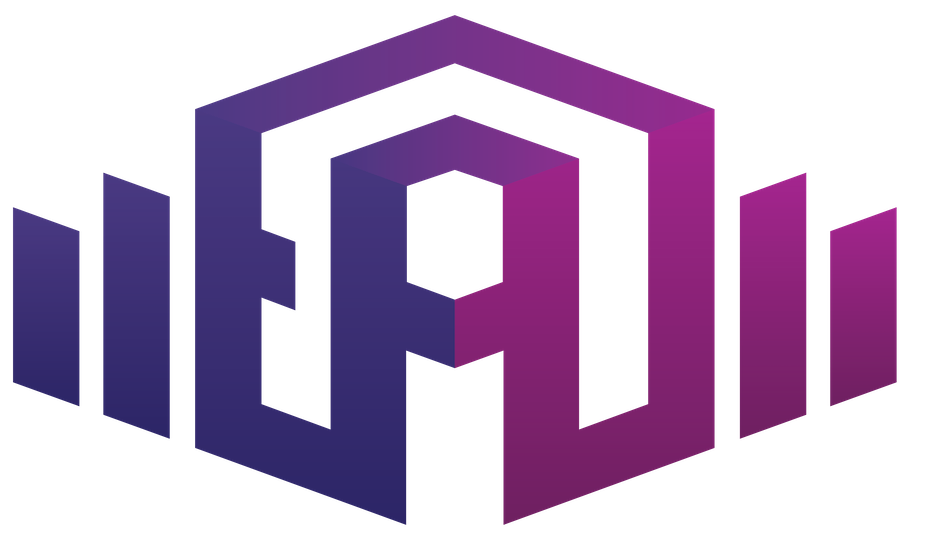Chaimae had the chance to attend, for the very first time, ARSAD (Advanced Research Seminar on Audio Description) in Barcelona. The conference took place from the 19th to the 21st of March 2025, and it marked her first experience attending a conference as a researcher.
My trip was full of firsts. It was also my first time visiting Spain, and Barcelona instantly captured my heart. The city is alive with history and character. I had heard Gaudí’s name so many times before, but seeing his work in person was something else entirely. His architecture, with its intricate detail and dreamlike quality, felt surreal in the best way. The city as a whole strikes this beautiful balance between a lively urban atmosphere and a deep historical presence. You can feel it in the streets, in the buildings, and in the overall rhythm of the city.

Not far from these landmarks, the ARSAD conference was held at the Institut d’Estudis Catalans, a venue with its own cultural and historical significance. The setting made the experience even more meaningful.
I had the pleasure of attending with Mariana López, who gave a brilliant presentation titled “Making Documentaries Accessible Through Sound Design”. Mariana explained in detail the Enhanced Audio Description (EAD) methods and workflows, and the highlight for me was watching clips from two documentaries, Visible Mending (Moore 2023) and Aspectum (Morris, Kilpatrick and Regan 2024). We saw excerpts both with and without accessibility features, which really showed the depth of thought and creativity behind the EAD work, a method of accessibility developed by Mariana and Gavin Kearney, and the result of over 10 years of research.
Although I wasn’t presenting this time, I really enjoyed listening to the different topics and learning from a wide range of practitioners and professionals in Audio Description. There were funny moments, emotional ones, and plenty of insights. The three days were intense, requiring a lot of concentration, but I came away with a deep appreciation for how much there is still to learn in this field.
One of the most surreal parts was meeting people whose names I’ve come across in research papers and bibliographies. These are researchers I’ve cited, learned from, and admired. And now I was getting the chance to meet them, hear their talks, and learn about their latest work in person. I won’t mention names, I’d hate to forget someone by accident, but I genuinely felt honoured to be surrounded by so many brilliant people.
The first day of the conference mainly focused on Audio Description and Artificial Intelligence. The talks explored both the challenges and the potential that AI brings to the field, with mixed opinions about its role in accessibility. Some speakers highlighted the benefits of AI in increasing efficiency and expanding access, while others raised concerns about the lack of nuance, creativity, and human sensitivity in automated approaches. One standout session was a structured debate between two speakers, each offering different perspectives on how AI fits into the world of Audio Description. It was thought-provoking and sparked plenty of questions.
The second day offered a rich mix of panel discussions, presentations, research pitches, and even a film screening. The sessions focused largely on the future of Audio Description, ongoing research, and how accessibility is being developed and implemented in different parts of the world.
The third and final day was packed with variety, featuring panels, presentations, and more pitches. Topics ranged from AD in dance, museums, and filmmaking to cognitive accessibility, training, and certification. It was an intense day, full of valuable insights and information from all corners of the accessibility field.
I want to take this opportunity to thank Mariana, Gavin, and the EAD project for making this experience possible. I learned so much, and it’s an experience I’ll carry with me for a long time. A big thank you as well to the ARSAD organising committee for all their hard work in organising such a rich and inspiring event. I’m grateful, motivated, and excited to keep learning and contributing to this amazing field.
Chaimae Alouan, doctoral researcher at the School of Arts and Creative Technologies, University of York working on Exploring Audio Description Challenges in Moroccan Cinema and Television.

